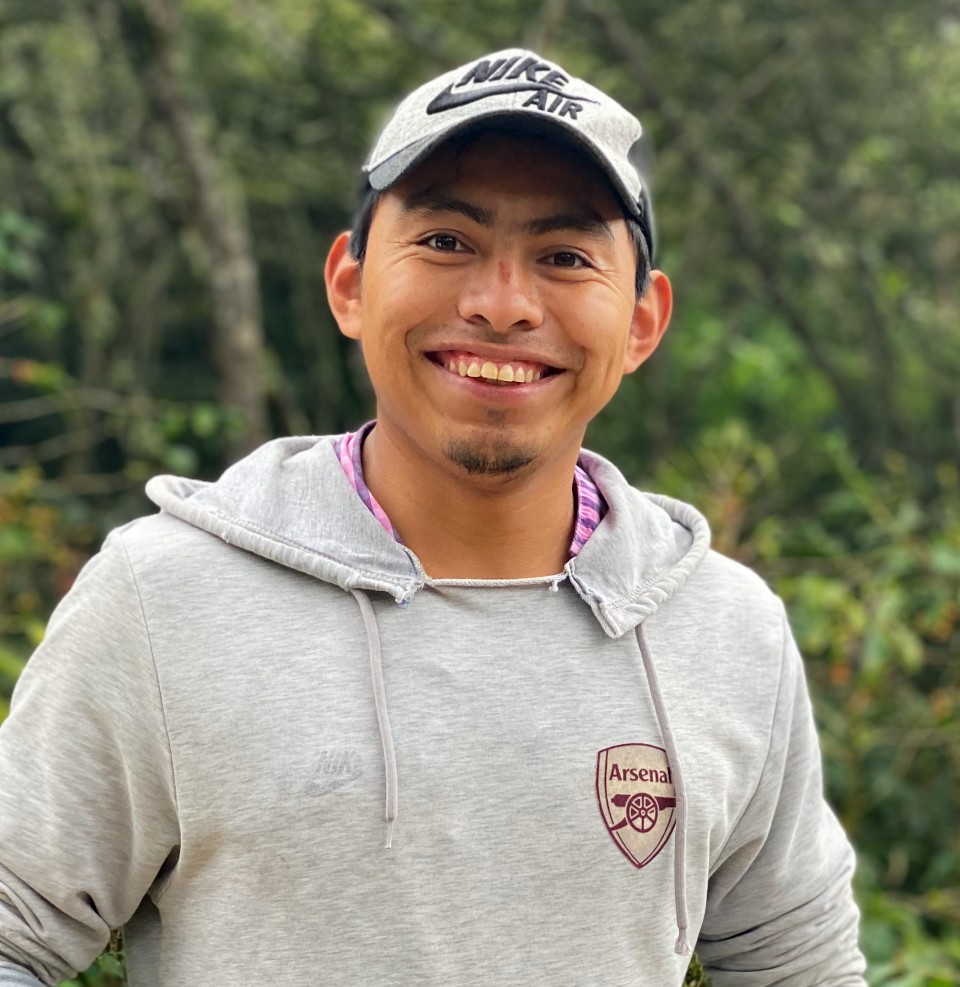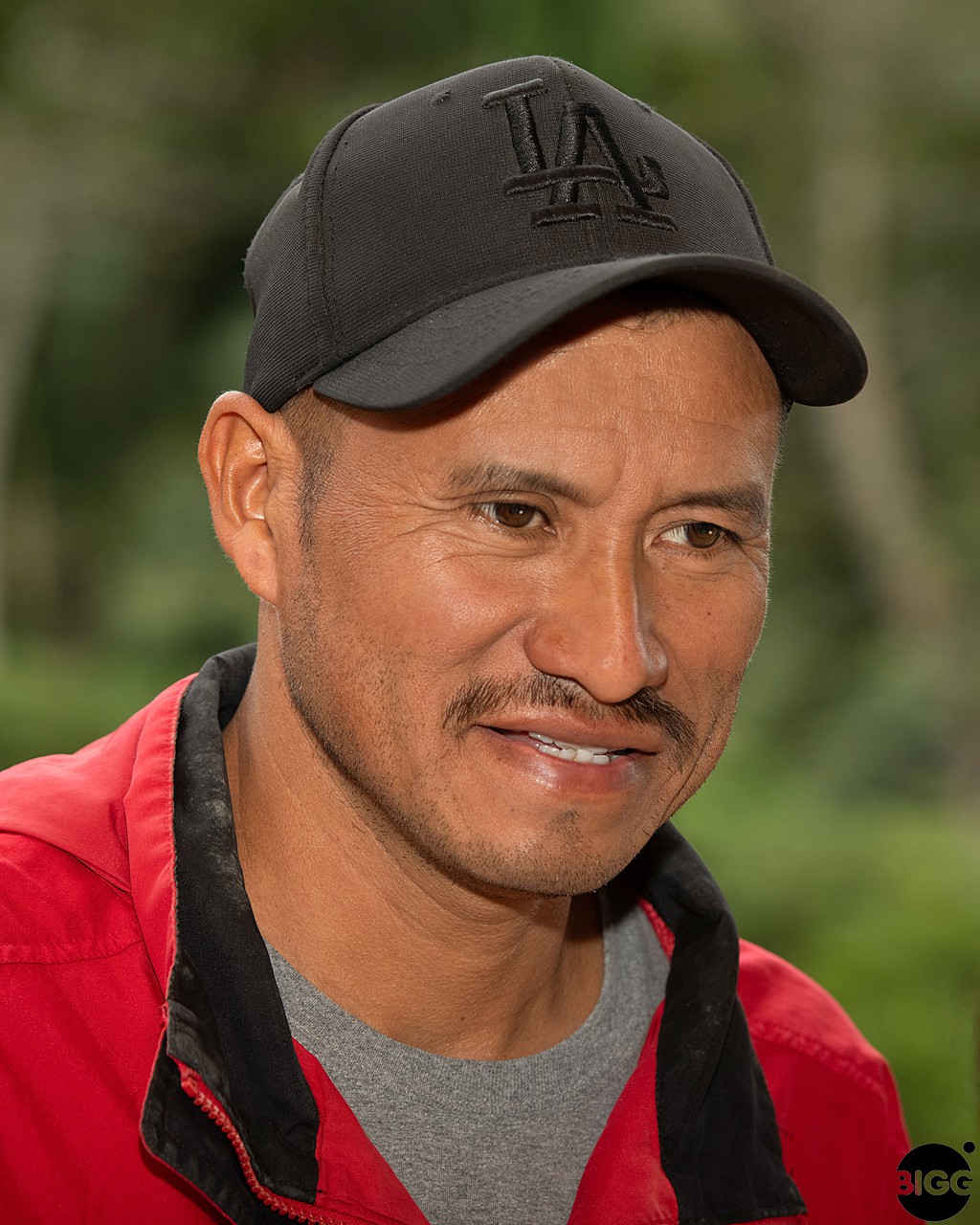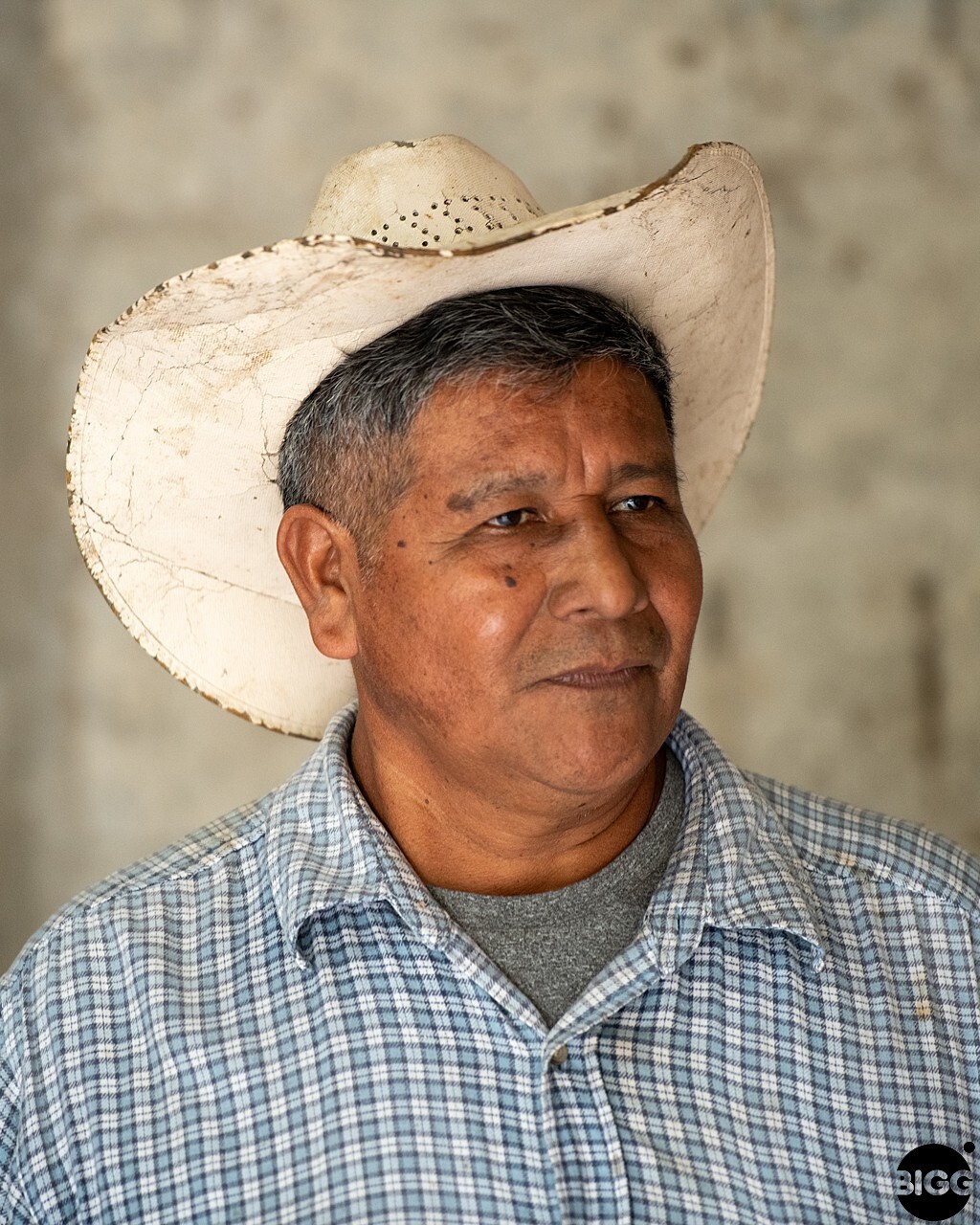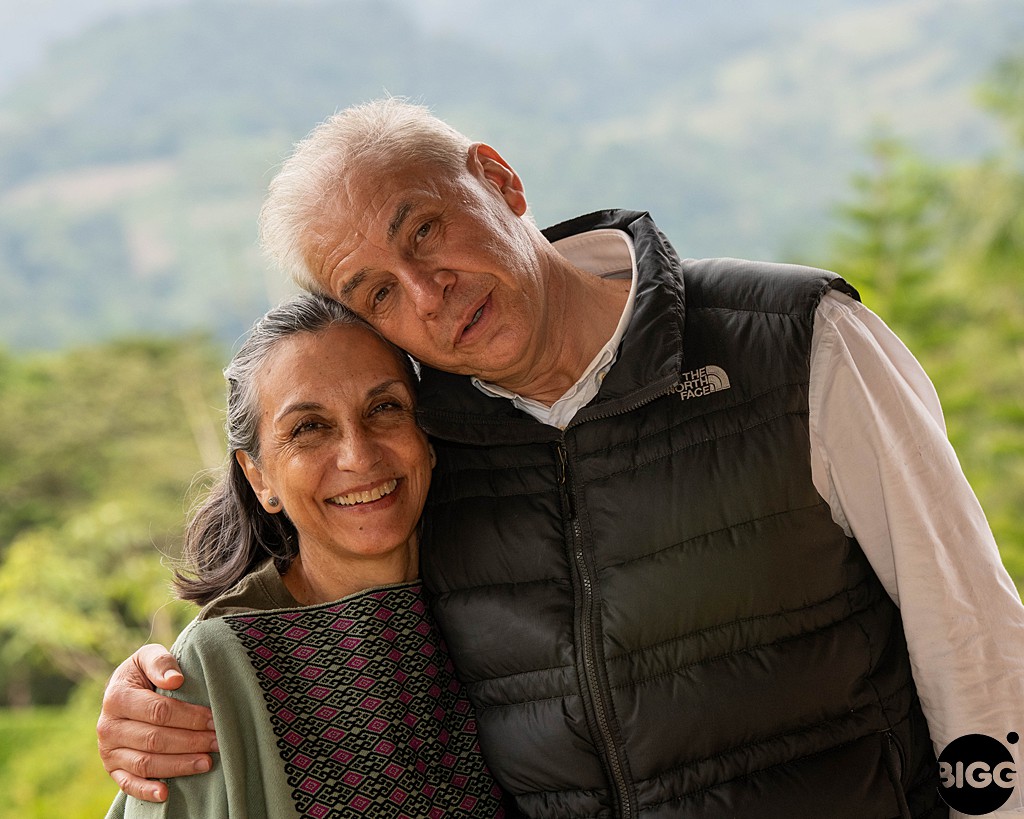By Michelle Fish
“When I see that my son is following in my footsteps, that’s when I know I am on the right path.”
That’s what Salomon Demeza told me on our second visit to his farm. His three-year-old son Allan Benjamin was playing with a toy truck in the dirt around his father’s ankles. His wife, Viviana, smiled up at us.
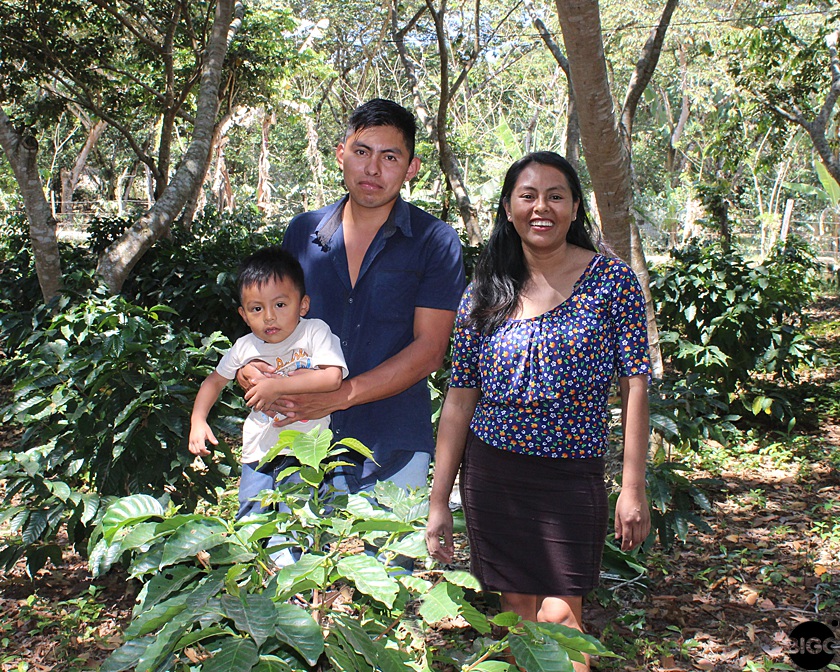
Salomon, with his wife Viviana and his son Allan Benjamin.Saloman is a second-generation coffee farmer. The only boy of nine children, he learned at the feet of his father, Sebastian. He was by his father’s side in 2014 when the Roja (rust) epidemic wiped out the coffee plants on his family’s farm.
That’s when Finca La Fortaleza was born. You can read here about how Pascual and Mary Esther stepped up to help the small producers in Chiapas weather the storm. Both Salomon and his dad credit them with their survival. Salomon was part of the team that helped convert La Fortaleza from a treeless cattle farm to a vibrant forested ecosystem in which coffee thrives.
La Fortaleza provided seedlings and guidance to get the small producers like Sebastian back up on his feet. And as Sebastian began to recover, he granted his only son a small parcel of land to start his own coffee.
Father and Son
Sebastian is the town character, a larger than life personality always hustling for donations, and deciding what tasks to do in the fields based on the phases of the moon. His most fervent wish is that his children will grant him enough descendants to start a colony where he will be king. You might think I’m making that up, but I assure you, I have the quotes from the notes I took in the field.
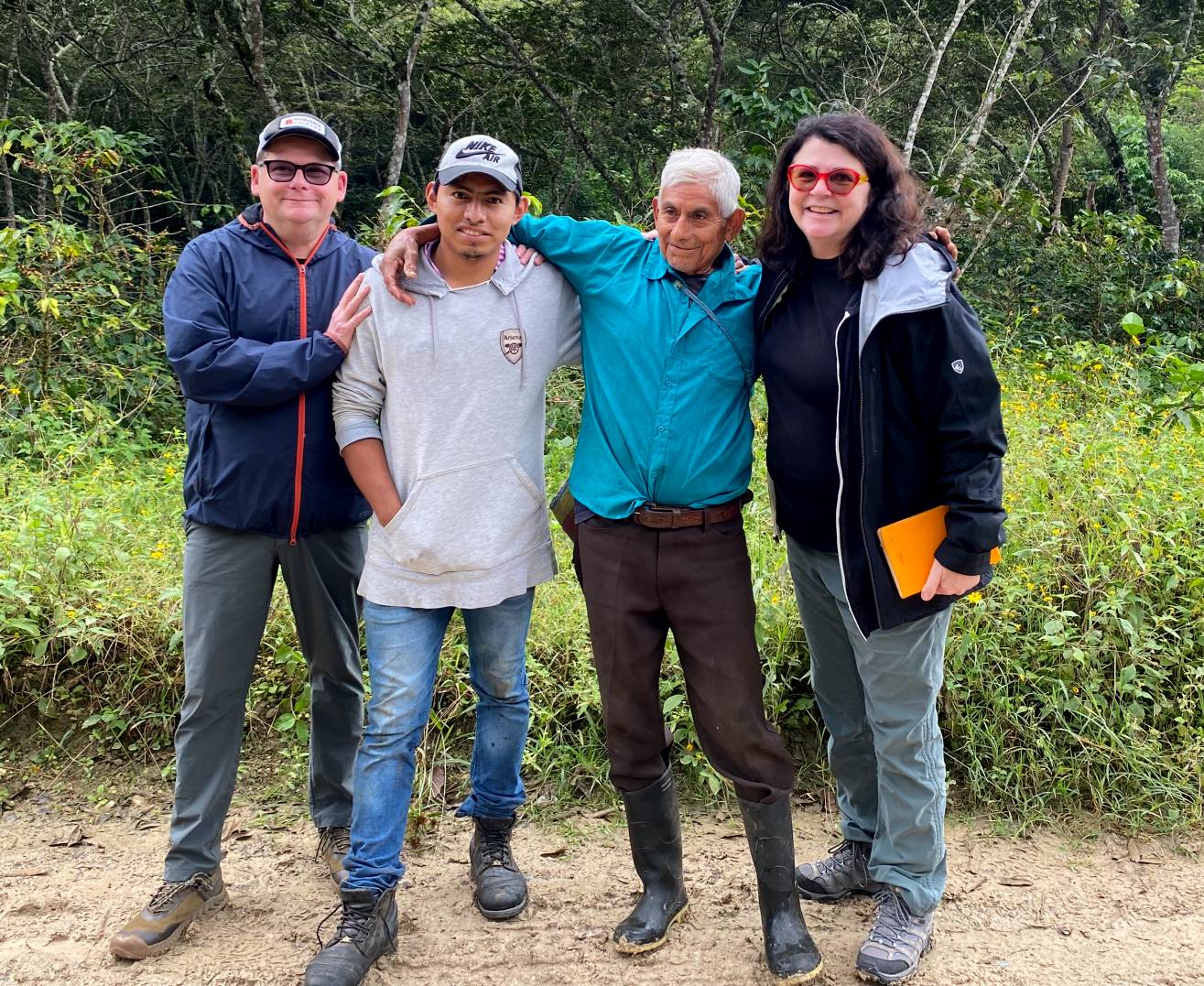
Meeting Sebastian (in the blue shirt) last January.Salomon has a quieter, more self-effacing approach to life, to family, and to coffee. And he has a science brain. This spring, he was conducting an experiment with one of his coffee plants.
Pascual Castillo, Mary Esther Saut, and their team of agronomists from La Fortaleza have been preaching the wisdom of soil sampling and regular fertilization to make sure the coffee is getting the nutrients it needs to produce its best, most bountiful crop. Sebastian favors letting God take care of the details. Salomon decided to put the two methods to the test.
The Experiment
So, with one of the Catimor seedlings he received from La Fortaleza three years ago, he is doing things exactly as Pascual and his team suggest. With the balance of the field, he is using his judgement – a mixture of what he has learned from Pascual, and his father’s home-spun, Farmer’s Almanac wisdom. And he is measuring the difference.
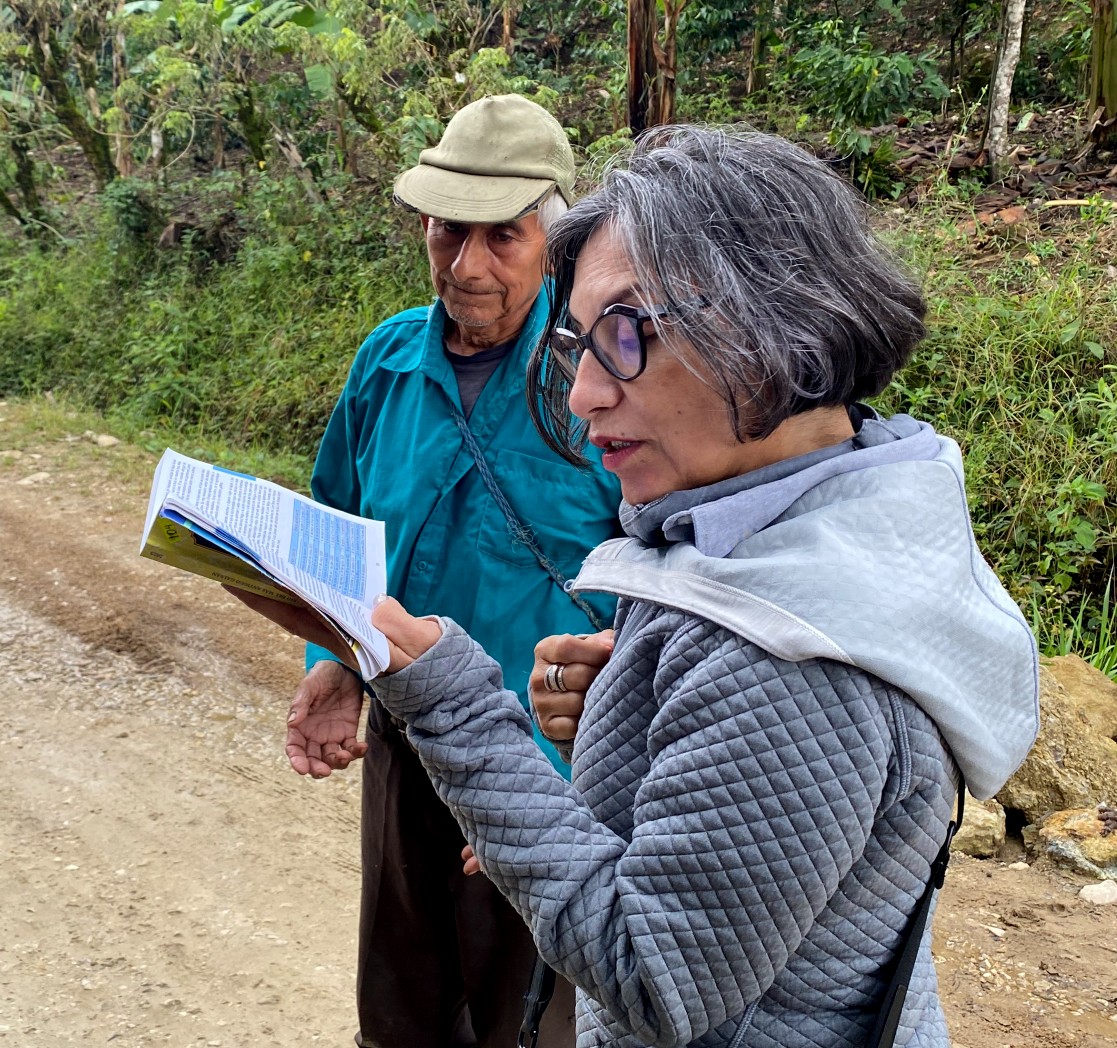
Sebastian showing Maria Esther Saut his Farmer’s Almanac.And oh, what a difference! While his coffee plants are generally doing well, the one that received four fertilizations and was pruned and tended according to La Fortaleza’s guidance is thriving. Looking at the branches, the upcoming harvest on this one plant will be about double what he’s getting from the balance of his crop. Bigger yields per plant mean a better future for his children. His mind is made up. Science is the way to go.
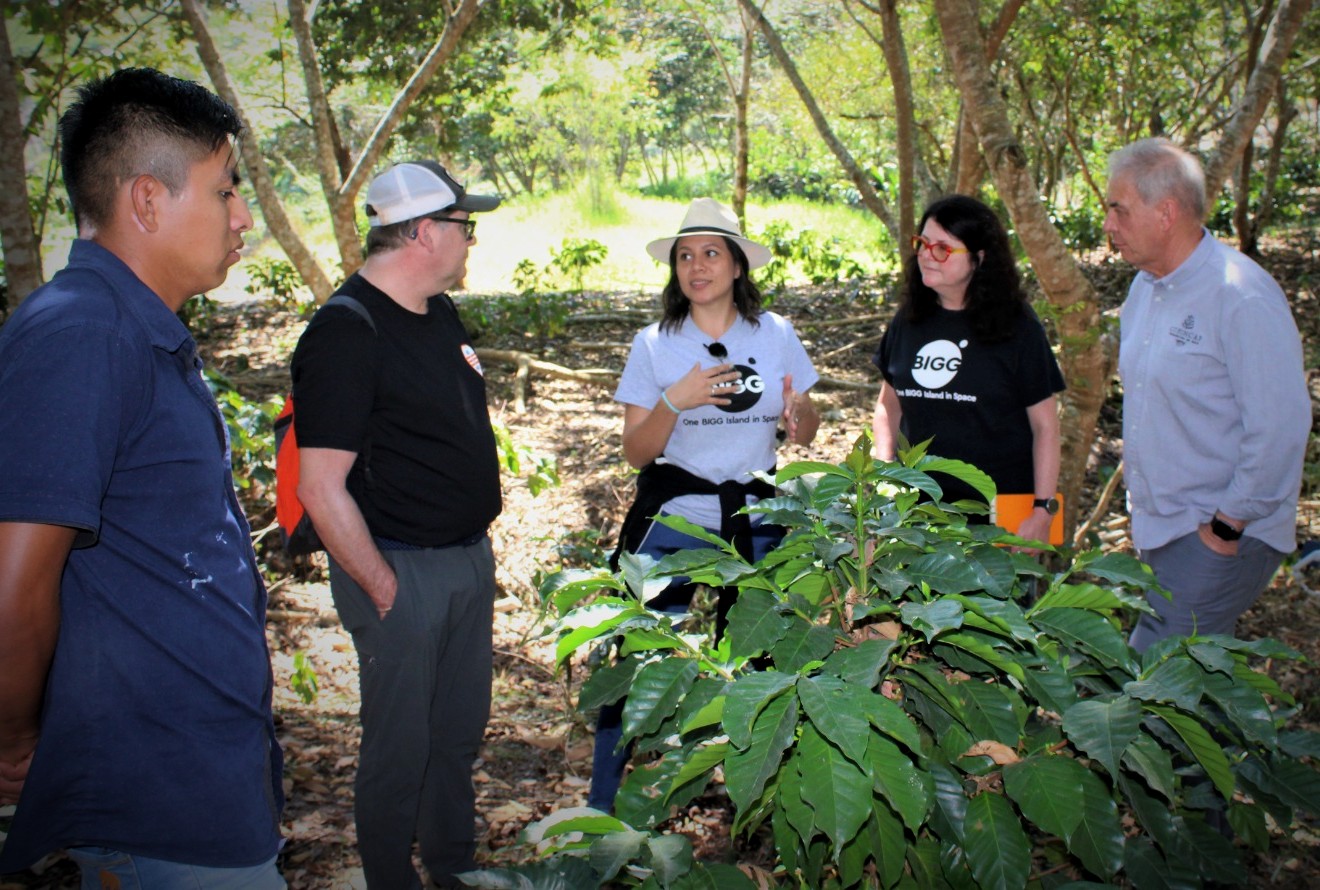
Examining the results of the experiment on the coffee plant, with (L-R) Salomon, Bob, Kathya Irias from Spirit Animal Coffee, Michelle, and Pascual Castillo.
Community Leader
Actually, the experiment was never just about him. Where his father is boisterous and loud, Salomon is more the quiet type of leader. He told me that when he and his dad knocked on Pascual’s door to ask for help, and they got it, he knew that it was his obligation to always pay it forward. So, as the family farm began to recover, and their neighbors came to Sebastian and Salomon to ask how they were making the change, it was Solomon who answered.
He helped neighbors convert their land back to coffee, connected them with La Fortaleza so they could get seedlings, and shared everything he had learned about the new ways of farming coffee to help combat Roja (rust).
This experiment he ran on his field is a great example of his leadership style. Of course, he wanted to know the answer definitively for himself. But he always wanted his neighbors to see the difference that a science-based approach could make in their crops, and their economic futures.
And that’s why he was chosen as one of the four small producers in our OBIIS partnership with Pascual Castillo and Mary Esther Sault. It’s never been about his own trajectory. Salomon does what he does for his family and his community.
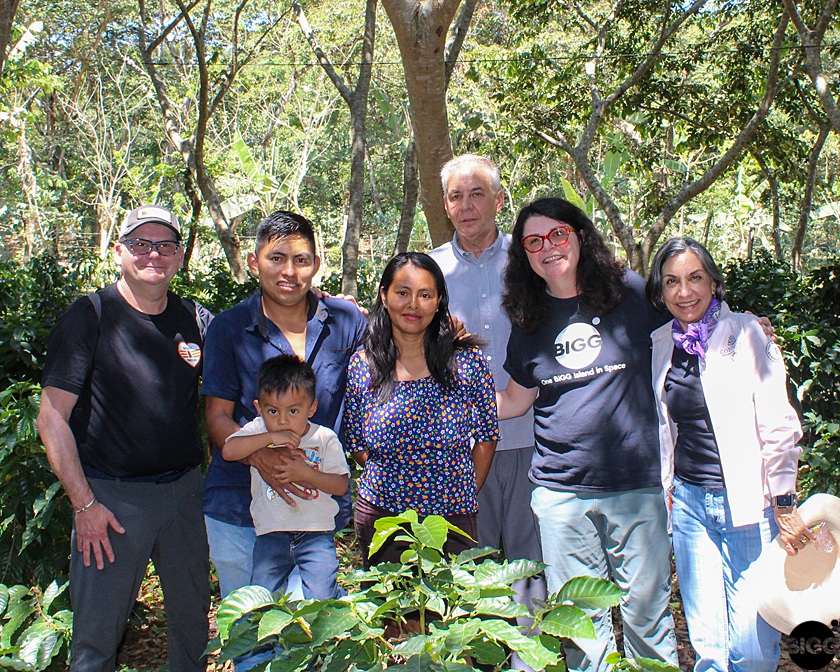
The Future
Salomon’s farm is one of La Fortaleza’s nearest neighbors. Nestled by the banks of a stream, they have abundant access to clean water, and (according to Pascual), some of the best soil in the region. It’s just the way Mother Nature works. Some plots are just more naturally abundant than others.
Although his coffee farm is currently small… less than 2 hectares, he has his eyes on a couple of pieces of adjacent cattle land that could double his holdings. And he has the knowledge, the work ethic, and the vision to make it a thriving business that will provide a great education for his children and inspire his community to bigger and better things.
The sustainable price he is receiving for his coffee through his partnership with OBIIS is the engine that will get him there.
When we met his dad, Sebastian, on our first visit to Salomon’s farm, I wondered how a quiet, seemingly shy only son could possibly find his way out of his father’s formidable shadow. Sebastian told me that he has always preached to his children that they should do exactly as he does, follow in his footsteps if they want to know that they are on the right path. For Salomon, it’s the opposite. He will only know that he is on the right path if it inspires his children, and his neighbors, to follow.
I guess he found his own way after all.

